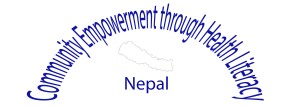Shall we Discuss??
In low resource settings, major proportion of the general population are still working to fulfill the basic needs (Food, Clothes & Shelter) and Health is more of a basic protection issue. There are many instances where food needs are more pressing than health needs. As front line health care professionals (Doctors, Dentists, Nurses, Laboratory Personnel & Paramedics), it is of utmost importance that there is a clear understanding of Health from humanities point of view and is reflected in decision making and actions.
Nepal at a glance
-
- Only Low income country in South Asia
- HDI rank – 147 of 187 countries in the world
- The life expectancy at birth ~ 70years.
- Population is 26.4 million, with 83% living in rural areas.
- One fourth of the population below the poverty line.
- Adult literacy rate is close to 70% (with female less than 60%)
- Doctor to population ratio is 0.37/1,000 people (as low as 0.008 in rural areas and 1.5/1,000 people in the capital city).
- Individuals bear 55% of total healthcare expenditure as out-of-pocket payments
- About two thirds of healthcare in the acute sector is provided by private hospitals
- Universal Health Coverage not in place
- Health Insurance preliminary stage
- Selected services are free at Selected institutions (Birthing, TB, HIV etc)
- Double burden of disease
- Pneumonia and diarrhoea (rank 1 & 2 in causes of premature deaths
- 6 out of 10 in the list are Infectious diseases
- IHD & Stroke among the top 10
- ~50% of all deaths by NCDs
- Hospital based prevalence of NCD =40%
Factors affecting Health care engagement in Nepal (Budhathoki 2017)
-
Income and Cost
- Cost of Services
- Cost of Transport
- Income status
- Employment status
- Socioeconomic status
-
Culture and gender
- Gender roles/discrimination
- Cultural norms of women involvement in decision making
- Men’s involvement in women’s health
- Womens’ autonomy
- Spousal support
-
Knowledge and Education
- Knowledge of services
- Knowledge of health problems
- Knowledge of hazards
- Knowledge of Economic burden
- Access to good quality information
-
Quality of services
- Health system responsiveness
- Infrastructure/Availability of Services
- Communication skills of staff
- Health worker’s attitude
- Human resources for health
- Technical/Managerial competence of staff
Health Sciences Curriculum does have components of Social and Behavioral Sciences, Humanities that focus on Communication Skills.
Bhutta et al 2010, summaries “… reform the vision, programmes, and systems of educational institutions to train health professionals who can meet people’s needs, empower communities, and enhance human wellbeing. Too often forgotten is that the production of health is knowledge-based and socially driven, and health professionals as knowledge brokers are key drivers of health advance”.
Does the curriculum consider these outcomes?
How is that reflect on the Health Sciences Graduates?

